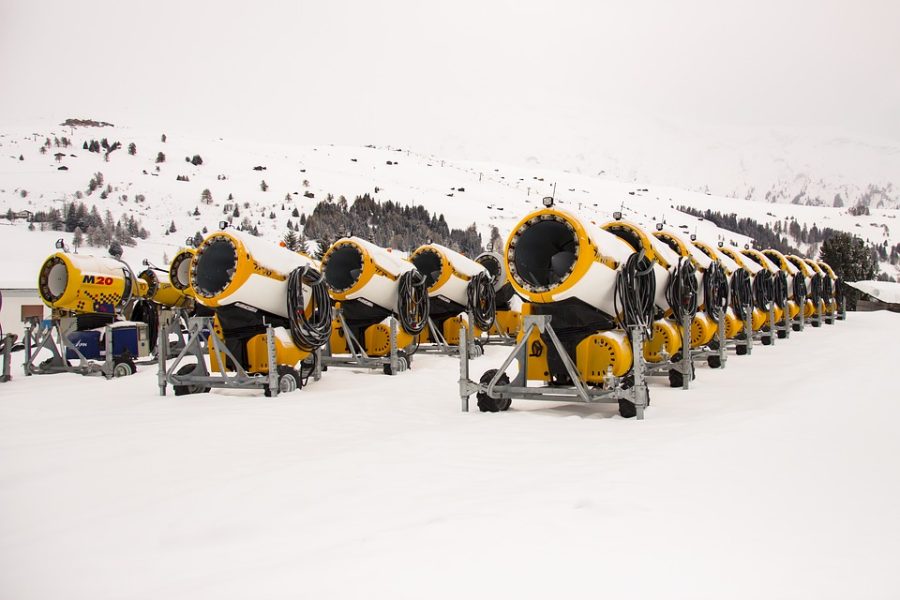With all eyes on the Winter Olympic athletes, one fundamental element is seldom discussed: snow and its impact on the future of the games.
Creating this year’s Olympic winter wonderland put a strain on the environment and used an astounding amount of resources. China imported 49 million gallons of water to create the snow necessary for two weeks worth of competition. The same amount of water consumed by 900 million people per day.
This water is a necessity in the snowmaking process. China utilized 272 propeller-driven fan guns to freeze tiny balls of water into crystals we see as snow. These frozen balls of water are more dense and slippery than snow many of the competing athletes are used to practicing on. But even this artificial snow is unsustainable.
Research from the University of Waterloo in Canada shows that only one of the last 21 Olympic venues will be reliable by the end of the century, if emissions stay at their current levels. Climate change affects everything from international competitions to local ski resorts. Olympic athletes shared their contrasting views on this snow’s impact on winter sports.
American skier Mikaela Shiffrin shared her opinion about artificial snow. “I feel that it’s incredible,” she told Sports Illustrated. This was said after she fell in both the Slalom and Giant Slalom in Beijing, events she has won at previous Olympics. Shiffrin refused to blame the machine made snow for her performances.
Other athletes in Beijing have different views about the snow. Estonian Biathlete Johanna Taliharm thinks artificial snow can come with downsides as well. “Artificial snow is icier, therefore faster and more dangerous,” Taliharm said. “It also hurts more if you fall outside of the course when there is no fluffy snowbank, but a rocky and muddy hard ground.”
Even if snow used on the slopes is perfect, there is no way to protect athletes who skid outside of the course. Real mountains have fluffy snow banks that protect athletes. No fan gun can create powder that soft. But this is not the only hurdle for future Winter Olympic Games. Climate change may transform the games forever.
Local resorts will go out of business when they are unable to create enough snow-either from warm temperatures or lack of water. Many PV students take to the slopes during the holidays to enjoy the sports of skiing and snowboarding. Weekend trips to Snowstar and other ski resorts will not be a familiar experience for future PV students at this rate.
Internationally, Chinese President Xi Jinping promised a more “green, inclusive, open and corruption-free” Winter Olympics, but climate change is not an issue for sporting organizations or politicians to solve alone.
It is an issue that requires a society-wide response. If students want to create a better future where skiing and snowboarding on Saturdays is the norm, they must take action. It is necessary to be aware of the effects of climate change and work to create a better future.










Adelaide • Feb 17, 2022 at 9:48 pm
I liked this article a lot because it brought attention to something that many people don’t even think twice about. It also made you want to take an action towards a better future now that you are better informed. I also liked how you looked at the athlete’s opinion on the fake snow as well.